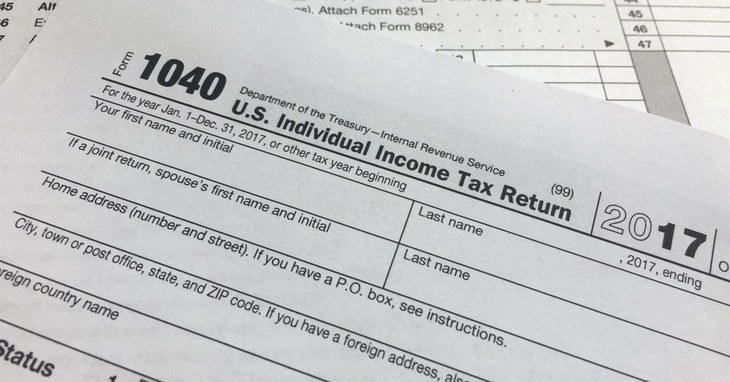Despite boasts about going after the 1%, they haven’t been the federal tax agency’s focus for some reason.
It has become a tiresome, platform talking point over the past few election cycles – the rich are not paying enough taxes. Corporations have been accused of paying zero income taxes. The empty claim from Bernie Sanders was always “the millionaires and billionaires” needed to pay their fair share. (He quickly dispatched ‘millionaires’ from his cliche’ the day his personal wealth was revealed to place him in that particular bracket.) Recently Elizabeth Warren has been sniping at Elon Musk within her vapid claim that he is not paying taxes, to which he has responded in kind, exposing her as an economic dunce.
But now, some data has been uncovered to show that–for all the billowing smoke pouring forth from these cement-head politicians–they are not achieving their dream of generating more tax-and-spend revenue from these supposed wealthy scofflaws. The IRS, their preferred enforcement arm of all things fungible, is not in fact going after the corpulent feline business set, and instead has been targeting those with the least amount of cash to turn over.
At the University of Syracuse, they run an outfit called the Transactional Records Access Clearinghouse (TRAC), a data research center that compiles comprehensive information about staffing, spending, and enforcement activities of the federal government. TRAC has just come out with an analysis of the activities at the IRS and found that, for reasons which defy common sense but are in line with the skewed logic of a bureaucracy, the agency has been auditing the citizens at the very bottom of the economic strata far more than anyone else.
According to TRAC, there was “[a] large increase in federal income tax audits targeting the poorest wage earners” in fiscal year 2021. More than just a curious bookkeeping anomaly, this was a practice that led to those earning $25,000 or less annually being audited at a rate five times greater than the rest of those filing tax returns. It is a story that could only derive from a federal agency. The office in charge of Hoovering tax dollars paid an undue amount of attention to those with the fewest dollars to gather.
Our government at…well, something besides work.
The IRS could not find the means to be dedicated to collecting from those with the greatest wealth. They audited the poorest in this country at a rate of 5/1. pic.twitter.com/ZbT3hSCG6w
READ RELATED: Maxie Jones Leaving General Hospital – What Happened To Her? Update Details
— Brad Slager – Digging into the CPAC 12-pack (@MartiniShark) March 12, 2022
There is an apparent reason for this: a severe lack of agents, according to the TRAC study. The manpower deficiency we see playing out is probably a combination of look-busy efforts and the meeting of quotas. Digging into the voluminous records of a wealthy filer is time-consuming and labor-intensive. While it would obviously be a more lucrative endeavor for a tax agent, this will also impact the number of audits that are being recorded.

As a result, you get a “correspondence audit”–a letter dashed off to a citizen who claims to be tax-exempt due to their income level, asking for verification–being registered in the system as an audit.
IRS accomplished over 650 thousand audits last year by jacking up its already high reliance on so called “correspondence audits” – essentially a letter from the IRS asking for documentation on a specific line item on a return. All but 100,000 of the 659,000 audits were conducted with these letters through the mail. Correspondence audits during FY 2021 rose to 85% of all IRS tax audits — up from roughly 80 percent during the previous two years
Understand what this means. The agency charged with collecting tax revenue was less concerned with going after the fertile filers with greater wealth than it was with meeting a certain level of recorded audits. It was more concerned with quota numbers than it was with dollar figures. This is insanity in any other aspect of our country, besides the government.
As the agency issued more of these audits, it did so at the same time as exhibiting an inability to handle the needs of those receiving these audits. The IRS customer service side appeared to shrink, just as taxpayer assistance volume swelled. One report to Congress showed that in 2021, the volume of calls into the agency tripled, as a result of this flood of mailed correspondence, yet only 11 percent of those calls actually managed to reach someone in the customer service division.
Now, if you have not received a migraine already from the head-shaking, consider something else. Combine this level of federal incompetence leading to a stunted collections system, and fold that into the massive amount of new spending we have seen enacted by Joe Biden at the same time. By this point, the only successful result in all of this is taxing our patience.
Source:






